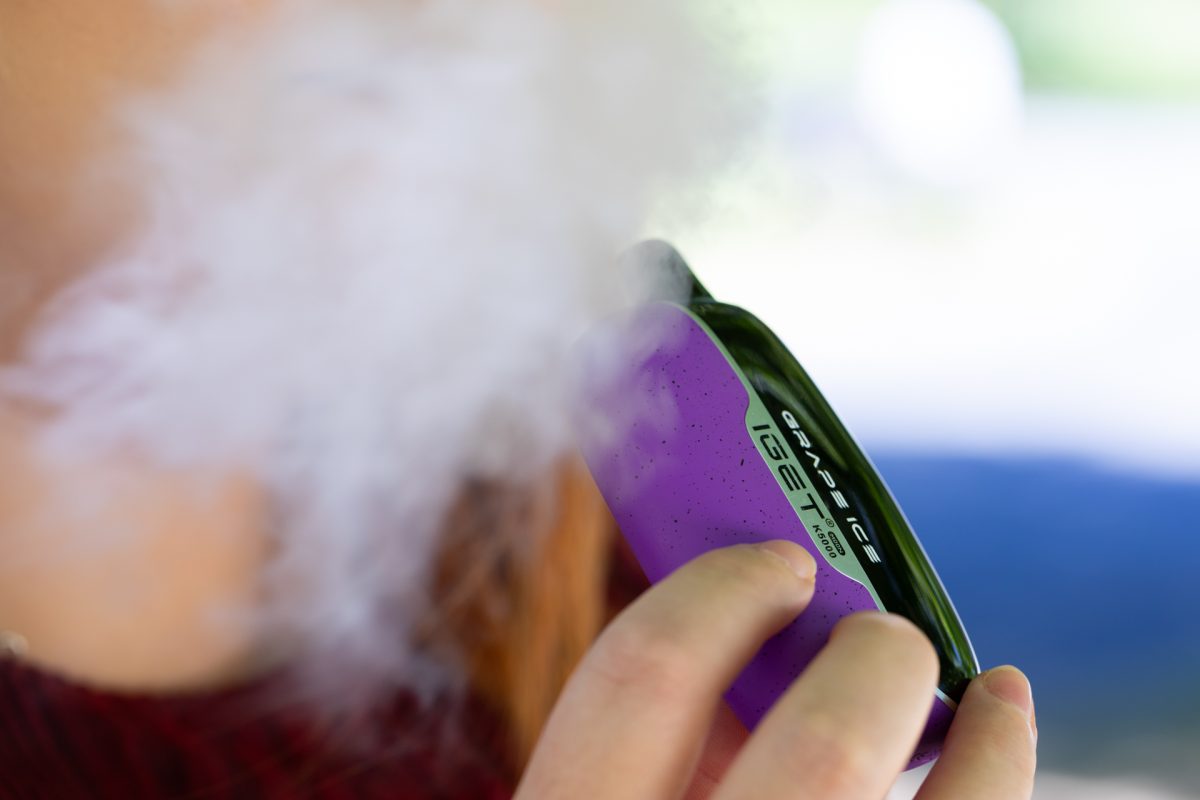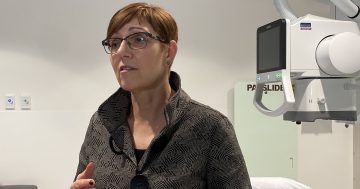
Federal Parliament has passed new laws for the sale of vapes. Photo: Michelle Kroll.
New vaping laws passed by both Houses of Parliament mean that from July vapers will need a prescription to get their e-smokes, but from October they won’t.
Come 1 October, pharmacists will need to consult customers over the age of 18 about vaping, check their ID, and then be able to sell them over-the-counter vapes.
In the three months leading up to that date, the products can only be sold by pharmacists via a doctor’s prescription.
The lag time comes about because a deal done between Labor and the Greens made last-minute changes to the Vaping Reforms Bill, effectively watering down the legislation over Greens’ concerns about criminalising vaping and the expense of regular GP visits.
But pharmacists are not yet geared up to sell vapes – with all of the new conditions attached to their sales – without prescription and have been given a three-month window to prepare for the changes.
The Pharmacy Guild of Australia strongly opposed the amendments, saying the changed laws will be “putting a new generation of young people in harm’s way”.
The guild’s national vice president Anthony Tassone said the amendments compromised community health and did not take into consideration the safety or efficacy of vapes as a smoking cessation device.
“Pharmacists are healthcare professionals and community pharmacies do not want to supply this potentially harmful, highly addictive product without a prescription,” he said.
“Thanks to this secret, Greens-led deal, community pharmacies across Australia are being asked to supply nicotine-containing vapes without a prescription …
“We are deeply disappointed that public policy has been developed in a vacuum without consultation prior to these amendments being passed.”
But Health Minister Mark Butler said the pharmacy guild did not make a submission to the Senate’s vaping inquiry or attend any of its hearings.
He added that pharmacists were already selling vapes and had been for some time.
“This is, I think, a sensible balance between access and serious reform, to return this product to its original intention, which was a therapeutic good,” the Minister said.
“Of course, pharmacies aren’t owned by the government, so they can’t be directed by the government what they sell.
“You know, some pharmacies choose to offer methadone treatment, some don’t. This will obviously be a decision by individual pharmacies.”
Just how detailed a pharmacist’s consultation needs to be with a vape customer remains unclear, but the counselling cannot be fobbed off to a pharmacy assistant to handle.
“I know pharmacists right around the country for a considerable period of time have been having careful, professional discussions with their customers about smoking cessation support,” Mr Butler said.
“They do that now; they’ve done it for a very long time. This is an additional tool in the toolkit for smoking cessation.
“The Pharmaceutical Society of Australia – which is the professional body for pharmacists, not the business lobby … has long had clinical guidelines about the way in which pharmacists should have those discussions with their customers and hardworking pharmacists right across Australia do this every day.
“Right now those guidelines include guidelines about how to have a discussion with their customers about vaping.
“Now we will continue to work with the PSA, the professional body, on updating those guidelines … But this is not new, vapes have been sold for a long time in pharmacies, we’re just updating the standards to make sure they’re strict.”
Tobacconists and service stations, as well as all other retailers besides pharmacies, will not be able to legally sell vapes.
Packaging of the vapes will be made plain to look like medicine, fancy flavours will be banned, and maximum levels of nicotine will be enforced.
It will be illegal to sell vapes to anyone under 18 unless they have a doctor’s prescription issued to help them quit smoking.
The Australian Council on Smoking and Health has welcomed the move.
Co-CEO Laura Hunter said the passing of the bill was a vital step in the government’s continuing reforms on vaping – closing the loophole that let mislabelled vapes containing nicotine into the hands of our children and young people.
“The days of our kids walking past the local vape stores to and from school are about to end. This is a big win for the Australian community,” she said.
“Equally, the importance of the change that vapes will undergo to restrict their flavours, design and amounts of nicotine cannot be understated. It will take away the appeal and availability that enticed our kids and got them hooked.”















